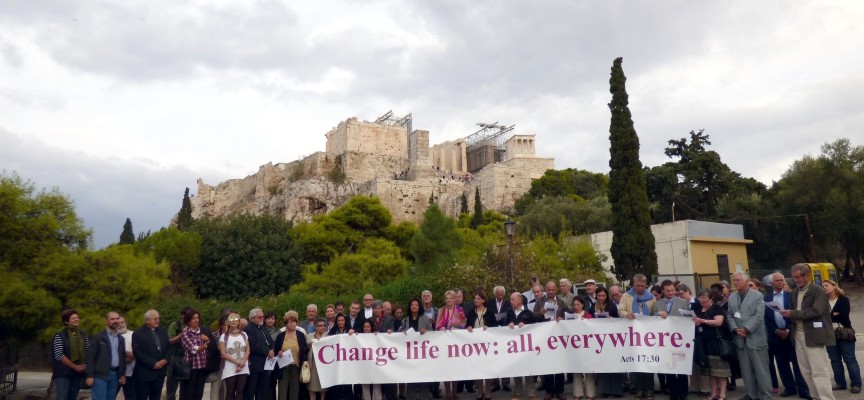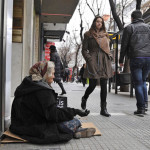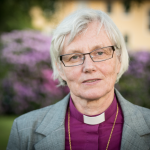The Catholic Church in Europe speaks out publicly on the intensification of nationalist phenomena. She does it through the European network of the 31 national “Justice and Peace” commissions, by means of a document, The Nationalism of Exclusion, which opens, along with other proposals, the Concerted Action 2015.
There could not be another more appropriate time to speak out on the issue of this widespread phenomenon that was further fuelled by the events of Paris and Copenhagen. The reflection was prompted by the outcome of several elections in Europe in recent months, as in many countries a huge number of votes were given to anti-European, but especially xenophobic, nationalist parties. We could easily accept the desire of several parties or ethnic groups to claim forms of autonomy within a State, as long as they are pursued by democratic means, without fits of hatred or violence. Even the social teaching of the Church, which also insists on the principle of equality, calls for respect for the rights of cultural or ethnic minorities in the various national cultures.
In many cases, however, these legitimate forms of nationalism are turned into a “nationalism of exclusion” by political forces with “simplistic political programmes” which propose solutions “to the detriment of other peoples,” as the best way to the security and prosperity of their own countries, echoing racist and xenophobic choruses reminiscent of the “belligerent and ultra-nationalist politics which preceded both World Wars.” Justice is denied, social cohesion and peace are threatened. Contrary to what these parties claim, there are no simple and easy answers to the problems placed by pluralism and globalization. The example given in the document is migration – a phenomenon which runs through the history of humankind, combining economic and demographic imbalances, lack of peace, and now the consequences of climate change too. To close the borders would be an “unrealistic and inhumane” solution. Instead, we should think about other possible solutions: how to share the responsibility of hospitality? How to work for a peaceful settlement of conflicts and deal with the need for reconstruction in the framework of international law? How to improve the strategies of cooperation to development in third countries? How to work for the integration of foreign communities in destination countries?
Another example is the anti-European discourse that neglects to reflect on the situation that a single State shall deal with in a globalized economic context. “For Christians the nation cannot be a supreme value,” insists the document while excluding all forms of chauvinism, but also defining as “unjustified” any feeling of national supremacy. The only alternative is to think in terms of the common good, justice, and peace. This gives way to seven recommendations, addressing political leaders and all actors of civil society: politicians are asked to work on the areas of employment, as a driving force for social integration, migration, and the strengthening of European integration. On the other hand, European citizens are encouraged: “to discuss the value of a strong identity as the basis for an inclusive society with strong social cohesion; to speak out against and question all expressions of nationalist rhetoric in private and in public life; to deepen democracy, solidarity and respect for human dignity through education and example; to value human dignity as an essential part of our common European heritage.” The document will be sent in the coming days to European political leaders.
(Full text at www.juspax-eu.org)
La Chiesa cattolica in Europa prende la parola pubblicamente sull’intensificarsi dei fenomeni nazionalisti. Lo fa attraverso la rete europea delle trenta commissioni nazionali “Giustizia e pace”, con un documento, Nazionalismo ed esclusione, che apre, assieme a una serie di proposte, l’Iniziativa condivisa 2015.
Non c’era momento più opportuno per prendere la parola su un fenomeno diffuso che i fatti di Parigi e Copenaghen hanno ulteriormente alimentato. La riflessione è stata sollecitata dagli esisti di diverse tornate elettorali in Europa, che nei mesi scorsi hanno visto in molti Paesi confluire i voti su partiti nazionalistici anti-europei, ma soprattutto xenofobi. Lecito può essere il desiderio di partiti o gruppi etnici di rivendicare forme di autonomia all’interno di uno Stato, nella misura in cui ciò avvenga nel rispetto delle regole democratiche, senza eccessi di odio né tantomeno violenza. Anche l’insegnamento sociale della Chiesa, che pure insiste sul criterio dell’uguaglianza, invita al rispetto per i diritti delle minoranze culturali o etniche presenti nelle diverse culture nazionali.
In molte situazioni, però, queste forme lecite di nazionalismo vengono trasformate in “nazionalismi dell’esclusione” da forze politiche che con “programmi politici semplicistici” propongono come strada per la sicurezza e la prosperità dei loro Paesi soluzioni che vanno “a detrimento di altri”, ricalcando ritornelli razzisti e xenofobi che ricordano “le politiche belligeranti e ultranazionaliste del periodo precedente alle due guerre mondiali”. Viene negata la giustizia, minacciate la coesione sociale e la pace. Non ci sono – contrariamente a quanto sostengono questi partiti – risposte facili e semplici ai problemi posti dal pluralismo e dalla globalizzazione. Come esempio, il documento cita le migrazioni: fenomeno che attraversa la storia dell’umanità, in cui si mescolano disequilibri economici e demografici, assenza di pace e ora anche le conseguenze dei cambiamenti climatici. Chiudere le frontiere è soluzione “irrealista e disumana”. Occorre invece ragionare su altre soluzioni possibili: come condividere la responsabilità dell’accoglienza; come affrontare nel quadro del diritto internazionale le situazioni di conflitto e le necessità della ricostruzione; come migliorare le strategie di aiuti allo sviluppo nei paesi terzi e lavorare per l’integrazione delle comunità straniere nei paesi di destinazione.
Altro esempio è il discorso anti-europeista che tralascia di ragionare sul destino che dovrebbe affrontare un singolo Stato nel contesto economico mondializzato. “Per i cristiani la nazione non può rappresentare il valore supremo”, ribadisce il documento che esclude ogni forma di sciovinismo, ma definisce anche “ingiustificabile” qualsiasi sentimento di supremazia nazionale. L’unica alternativa possibile è ragionare in termini di bene comune, giustizia, pace. Di qui sette raccomandazioni, ai responsabili politici e alla società civile: alla politica si chiede di lavorare sugli ambiti dell’occupazione, volano per l’integrazione, delle migrazioni, del rafforzamento dell’integrazione europea. L’invito ai cittadini europei invece è di “confrontarsi sul significato d’identità forte per una società inclusiva dove regni la coesione sociale; ribellarsi alla retorica nazionalista; rafforzare la democrazia attraverso l’educazione e la forza degli esempi; valorizzare la dignità umana”. Il documento sarà inviato nei prossimi giorni ai responsabili politici europei.
(testo integrale su www.juspax-eu.org)










